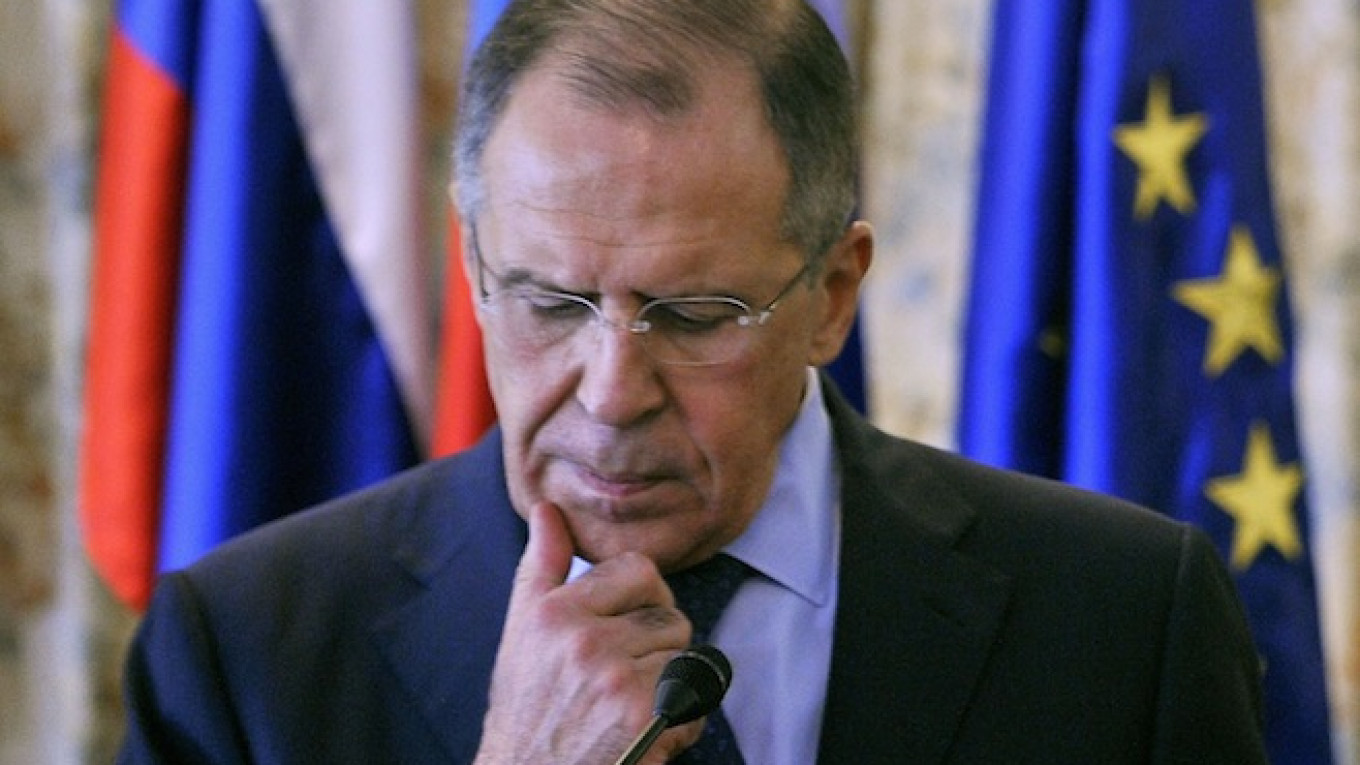Concerned that Russia is not very well-liked by its neighbors after annexing part of Ukraine, a Russian foreign-affairs agency has proposed a solution: Put more money into promotional campaigns to show Moscow's true warm and friendly nature.
At a meeting with officials from the Foreign Ministry's agency in charge of improving Russia's image abroad, Foreign Minister Sergei Lavrov said Wednesday that since the start of the Ukraine crisis, Moscow has run into some popularity problems and blamed its bad rap on opponents' unfair political campaigning and some outdated stereotypes.
"Events in Ukraine and around it have clearly demonstrated that we are facing competition – frequently of an unfair kind – in the issues of forming public opinion," Lavrov said, according to an official transcript of his remarks published on the ministry's website.
"It is important that we increase our work on explaining Russia's line in international affairs, bringing truthful information to foreign public, strengthening contacts not only with those who seek constructive cooperation with us, but also with those players who are still laboring under the influence of prejudices of a past epoch," he said.
None of this means that Russia needs to change its ways, Lavrov indicated: "As President Vladimir Putin has confirmed, we will continue in the future to defend the rights of Russians, our compatriots abroad, by using the full arsenal of legitimate means available to us."
But since the country has some image problems to tackle, Lavrov said that the Foreign Ministry's state-promotion agency Rossotrudnichestvo needs to get down to the task.
The agency's head Konstantin Kosachev conceded that Russia may be lagging behind some other countries in humanitarian affairs, but said that more money would be helpful for highlighting the country's accomplishments, the Kommersant newspaper reported Thursday.
The agency's annual budget stands at relatively low 2.7 billion rubles ($80 million), with salaries ranking 83rd among Russia's 85 government services, he said in comments carried by Kommersant.
"Our geopolitical competitors have had a head start," Kosachev said. "They built relevant programs years and decades ago and are now utilizing their results. So when we are trying to prove to the government and the Federal Assembly [parliament] the need for broader financing of this work, one of our arguments is that this is not spending but an investment."
Kosechev said that his agency had prepared an "integrated strategy for increasing Russia's humanitarian influence in the world," a project that has already been approved by the Foreign Ministry and is awaiting review at other agencies.
Rossotrudnichestvo is running Russian culture centers overseas, and Deputy Culture Minister Alla Manilova has recently suggested tasking the agency with promoting Russia as an attractive travel destination.
See also:
A Message from The Moscow Times:
Dear readers,
We are facing unprecedented challenges. Russia's Prosecutor General's Office has designated The Moscow Times as an "undesirable" organization, criminalizing our work and putting our staff at risk of prosecution. This follows our earlier unjust labeling as a "foreign agent."
These actions are direct attempts to silence independent journalism in Russia. The authorities claim our work "discredits the decisions of the Russian leadership." We see things differently: we strive to provide accurate, unbiased reporting on Russia.
We, the journalists of The Moscow Times, refuse to be silenced. But to continue our work, we need your help.
Your support, no matter how small, makes a world of difference. If you can, please support us monthly starting from just $2. It's quick to set up, and every contribution makes a significant impact.
By supporting The Moscow Times, you're defending open, independent journalism in the face of repression. Thank you for standing with us.
Remind me later.


